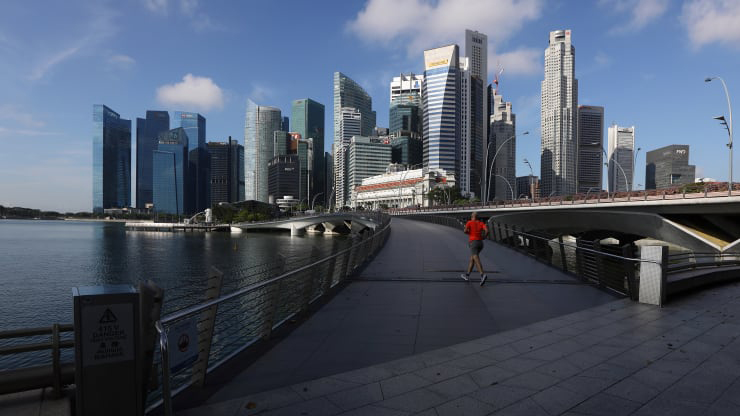Industry Trends
Asian economies may ride out the coronavirus crisis better than the West, analysts say
Source:China Sport ShowRelease time:02-Apr-2020Clicks:

Investors hunting for safe spots to park their money should look to Asia now amid the current pandemic, analysts said, highlighting that the region is much more prepared economically to ride out the current crisis compared to the West.
Additionally, the virus appears to be more contained in Asia now, while it’s still running its course in the West, according to Morgan Stanley.
Countries in the U.S. and Europe are scrambling to contain the pandemic, with entire states and cities locking down. The worst-hit countries in Europe, such as Italy and Spain, have seen cases surging to tens of thousands while infections in the U.S. spiked tenfold in a week to cross 50,000.
“It does make sense to tilt your portfolio towards China or towards Asia generally because the virus is moving from that region ... to the West where it is unfortunately not yet contained,” said Andrew Harmstone, a senior portfolio manager at Morgan Stanley.
However, he pointed out that the West is still China’s biggest customer, so a global recovery will be needed for China to make a full comeback. He said the economic impact of the pandemic has hit businesses in the U.S., and many small businesses — which employ about 60% of the country’s workforce — have only a month’s worth of cash flow.
Here are some reasons why analysts think Asian countries may be more prepared than their Western counterparts.
‘Better placed’ after past crises
Severe outbreaks are not new to countries in Asia. The latest coronavirus outbreak has often been likened to the SARS epidemic in 2003, which hit mainland China, Hong Kong, and Singapore particularly hard, and plunged their respective economies into recession.
That led governments to position themselves strongly for the next disaster.
“Mainstream Asian economies have learnt lessons from past crises and built strong sovereign balance sheets — which are meant to be deployed to cushion their economies in the face of external shocks,” Lin Jing Leong, investment manager for Asian fixed income at Aberdeen Standard Investments said in a Tuesday note. “It leaves them so much better placed to respond to this outbreak.”
Governments in the region have also learned quickly from China’s response to the outbreak.
“China’s response to the coronavirus crisis has taught the world key lessons on the way forward: contain first, then stimulate,” said New York City-based asset manager PineBridge Investments. “Already Asian governments like Hong Kong, Singapore, South Korea, the Philippines, and Malaysia have taken various forceful measures of containment, and that bodes well for the market recovery.”
Asian companies have stronger cash positions
“Asian companies have deep pockets,” said Siddhartha Singh, the investment director of Asia equities at PineBridge.
Most businesses in Asia that PineBridge tracked have responded to a “tough” business environment in the past two years by controlling costs and being disciplined in capital expenditure, among other measures, he said.
“It is not surprising to see that a comparison of top 100 companies (ex Financials) in large Asian and Western markets show that more Asian companies have net cash positions, meaning they have the ability to invest back in the business and potentially gain market share once the dust settles,” Singh wrote in a Tuesday note, citing data from Factset and Nomura.
Central banks in Asia have room to cut rates
Global interest rates are already low, with some countries already in negative territory. But central banks in Asia generally have more ammunition to cut borrowing costs to support their economies, compared to their U.S. and European peers, analysts suggested.
That implies that Asian central banks have more room to use monetary policy to boost their economies.
“Investors should not forget that real interest rates remain positive and nominal rates even higher among many Asian and emerging markets – in stark contrast to developed markets,” said Aberdeen’s Leong.
“This matters because it means Asian policymakers have room to adjust. It enables central banks to be proactive in easing rates, providing additional liquidity,” she said.
Central banks in the U.S. and Europe could be running out of tools, analysts have pointed out. The Federal Reserve had reduced the rate three times in 2019 for a total of 75 basis points. It then slashed rates to essentially zero in March, after two additional emergency cuts. Rates at the European Central Bank are already negative.
©2008-2023 CHINA SPORT SHOW, All Rights Reserved(京ICP备05083596号-2)



